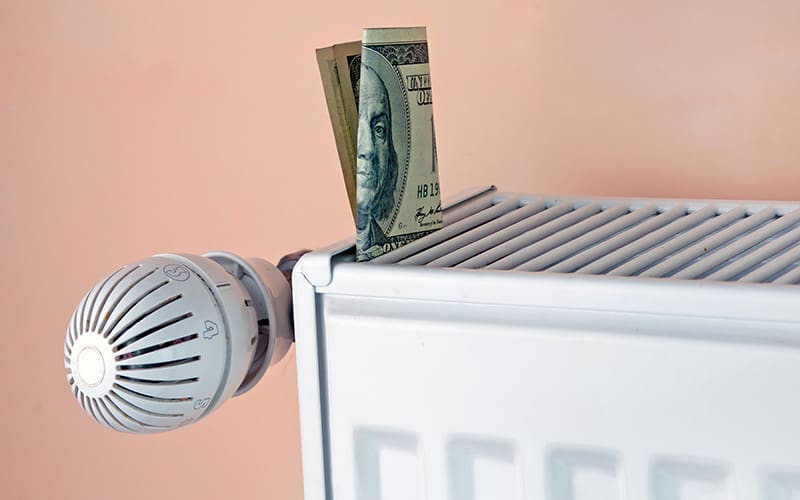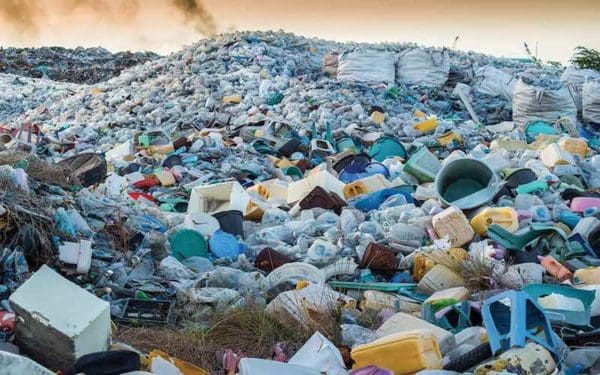
When gas companies screw up, we get the bill. Photo: Shutterstock
If your gas heating bill seems particularly high this year, you’re not alone. Gas prices have shot up this season in Massachusetts, so much so that the state government is scrambling to find a way to bring them down. The inflated bills are hitting those of us living with lower and fixed incomes the hardest.
So, what’s behind this sudden spike in gas prices?
Utility companies have pointed the finger, in part, at the costs of programs like Mass Save that are designed to increase energy efficiency (and ultimately save us all money). They’ve also said that customers are simply using more gas than usual due to the extended deep freezes we’ve experienced.
But that doesn’t explain the whole issue. While the causes of the price hike are complex, there’s one factor that gas companies don’t want you to know about: their own leaky, unrepaired pipes.
Faulty natural gas infrastructure in Greater Boston
The gas pipelines beneath Greater Boston’s streets are probably older than you think. A quarter of the pipes date back to before 1940. Most are at least half a century old. The pipes are made from wrought iron, which is prone to corrosion.
You’d be right if you think this sounds like a recipe for widespread leaks. In June 2024, National Grid – one of the area’s main providers of natural gas – published data showing more than 8,000 unaddressed leaks. The company’s refusal to act effectively to repair its fossil fuel infrastructure is negligence on a massive scale.
What happens to all that leaking gas? Some of it replaces oxygen in the soil, suffocating trees and other plant life to death. While it’s rare for a leak to produce enough gas to create an explosion risk, CLF’s investigators recently found at least 15 big enough to be dangerous (and reported them to the proper authorities). The leaked natural gas – also known as methane – eventually escapes into the atmosphere, fueling climate change at rates 10 times worse than carbon dioxide.
And you’re footing the bill.
The cost of natural gas to consumers
That’s right – you’re paying out of pocket for all that leaking methane. Customers pay for all the gas that National Grid pumps into its broken pipelines, whether it reaches your home or escapes through a cracked pipe that hasn’t been serviced since someone installed it pre-World War II.
When National Grid blames price hikes on increased demand for gas, we must remember that some of that “demand” can be traced back to leaks from pipelines that the company refuses to repair. Even customers trying to keep their bills low are seeing spiking costs. One mother of two on fixed disability payments told a reporter that she can’t afford her monthly gas bill, even though she keeps her house at 60 degrees.
Of course, this doesn’t mean that the entire increase in gas usage can be chalked up to bad pipes. Climate change has led to more extreme weather, including erratic temperature drops that naturally lead many of us to crank up the thermostat. But National Grid’s refusal to fix its broken pipes definitely worsens the problem.
Keeping methane in the pipes – or in the ground
That’s why CLF is suing National Grid. The company must be held accountable for the damage that it’s doing. Its unmaintained fossil fuel infrastructure kills trees, risks explosions, and causes our planet to overheat. It also puts a hole in our wallets, even forcing families to choose between food and heat.
Practical alternatives to natural gas exist. One of them, networked geothermal, has been tested out in local pilot projects. Those projects have proven that we can affordably heat homes and neighborhoods without any climate-damaging gases. Electric heat pumps have also made major strides in providing clean, cost-effective heating to homes
Whether it leaks from pipes or gets burned in people’s houses, methane overheats the atmosphere, and we need to stop using it. We’re not going to meaningfully slow climate change unless we move off natural gas. The unnecessary costs to our trees and bank accounts are just more compelling reasons to ditch gas altogether. CLF won’t let up until National Grid meets its obligations to our community.



